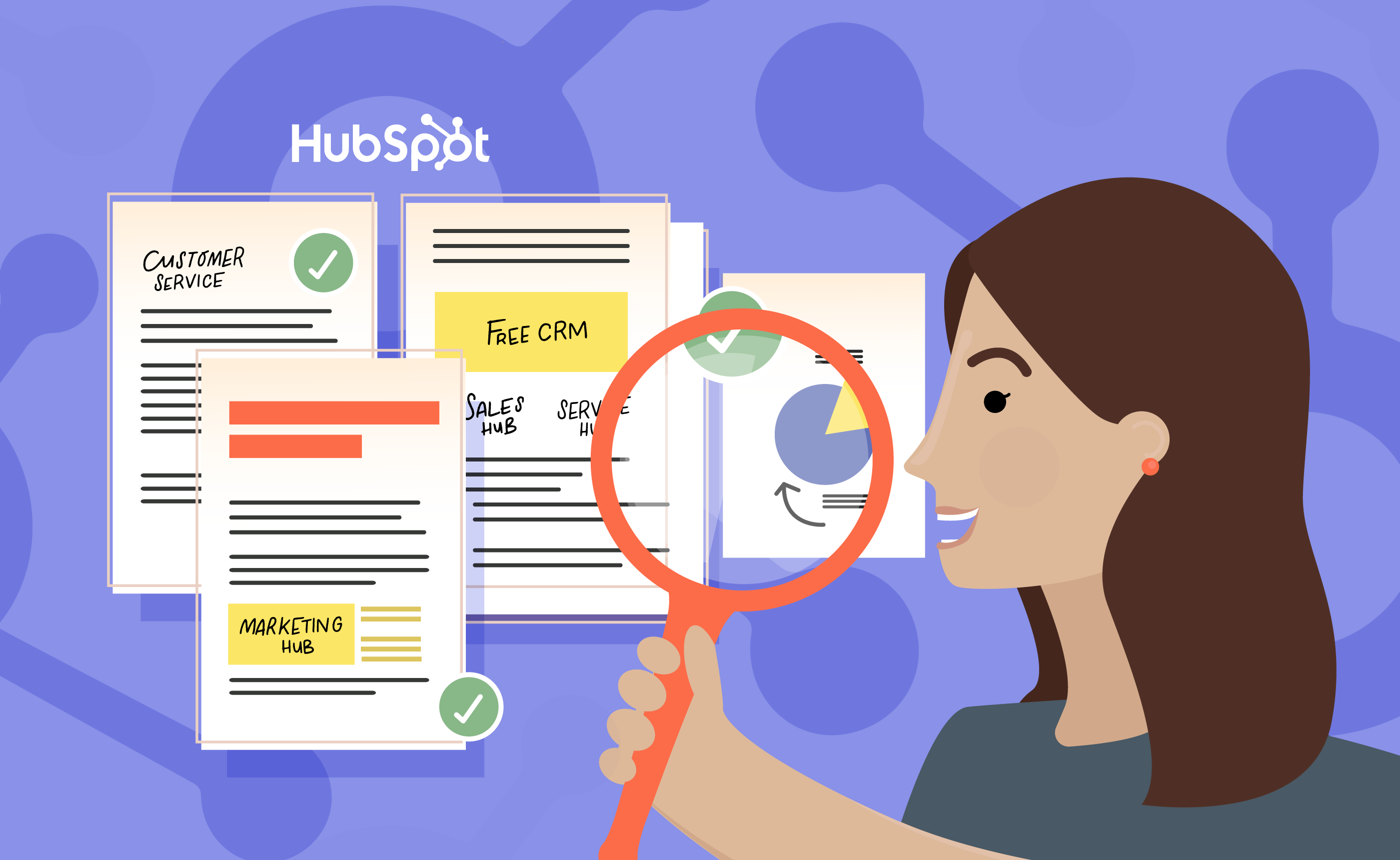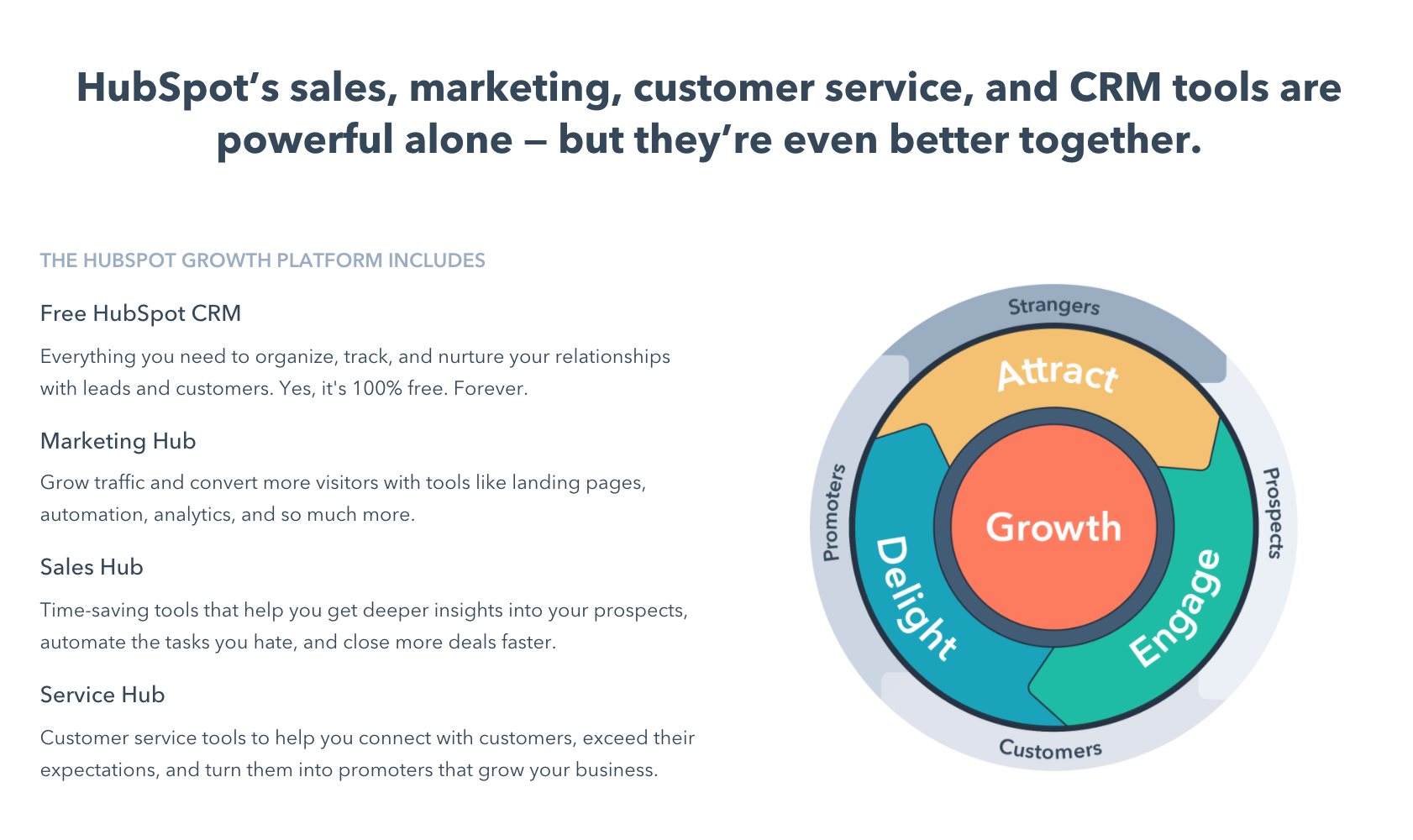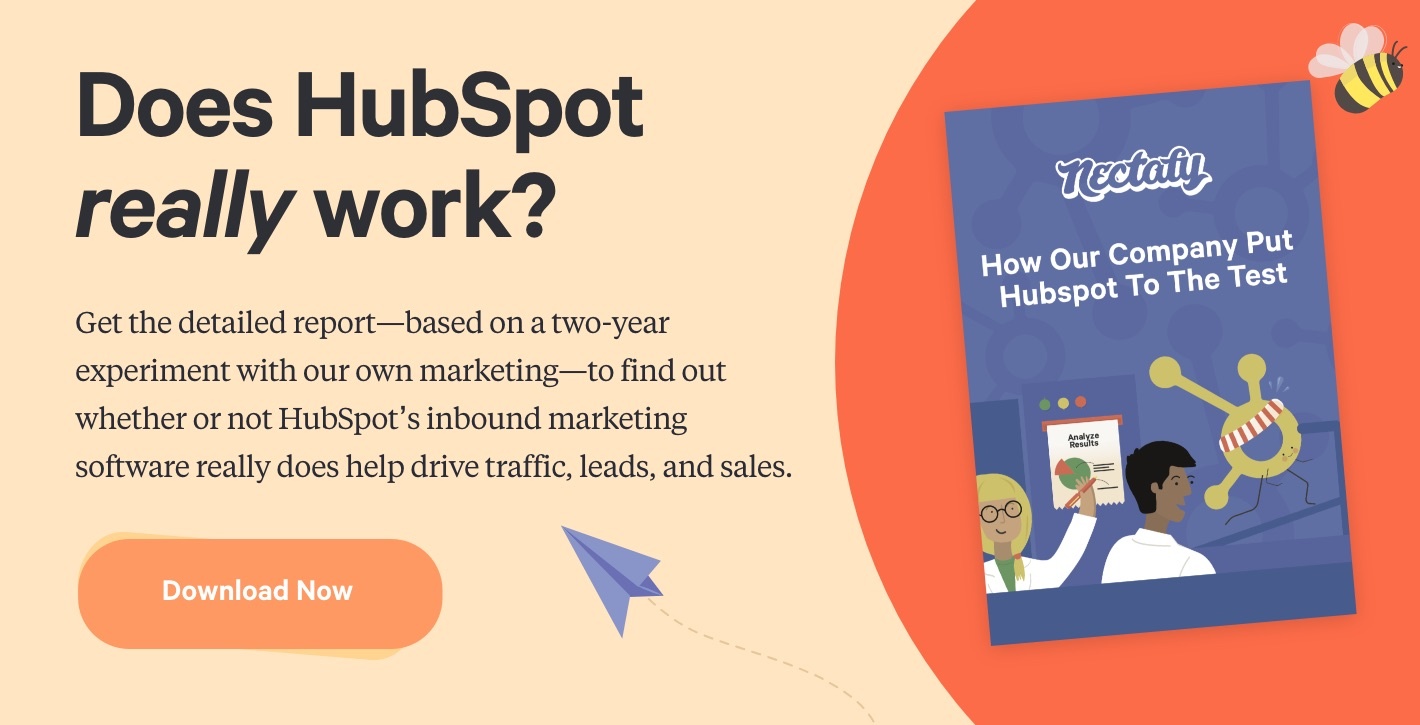What Is HubSpot, & What Is It Not? An Unbiased Explanation



We're pretty vocal about our inbound marketing software selection: we use HubSpot. Not only that, but we help our clients use HubSpot, and we frequently recommend it. (For transparency's sake, we are a HubSpot partner and affiliate, which means we may make a small commission when our clients choose HubSpot or when our blog readers click through and purchase HubSpot.)
But. We are first a partner for our clients—not for HubSpot.
We don't think everyone should use HubSpot.
We don't force our clients to use HubSpot because we get a commission—in fact, we recommend HubSpot only if you'll get more value from using it than from any other platform (including the one you're currently using) based on an evaluation of your company's current growth phase. We're always up for a conversation about this, and you can schedule a meeting with Lance to see if HubSpot is a good fit for you—no pressure or sales pitch involved.
Download Now: How Our Company Put HubSpot To The Test
What Is HubSpot?
Simply Put
HubSpot (a company based out of Cambridge, Massachusetts) offers a full stack of software (of the same name—HubSpot) that includes a CRM, a Marketing Hub, a Sales Hub, a CMS Hub, and a Service Hub.
But for the purposes of this article, I'm going to talk only about the CRM and marketing aspects.
That being said, HubSpot is an "all-in-one marketing software" that provides tools that can help your company with blogging, SEO, social media, email, landing pages, marketing automation, and web analytics. You can choose to either integrate the software into your current website, or build your company's entire website on HubSpot—it acts as a content management system (CMS), as well.
Simple... right?
Well, It's Actually A Little More Complicated
HubSpot defines their software as:
"...an inbound marketing software platform that helps companies attract visitors, convert leads, and close customers."
That statement isn't untrue—the software does help with those things. But here's the kicker: if you're buying HubSpot in hopes that the software itself will attract visitors, convert leads, and close customers, you're in for a big disappointment. Because it won't.
What will, though, is growth content.
Let me explain.
Inbound Marketing vs. Growth Content
When you read Nectafy articles and case studies or look through our website, you’ll see the term “growth content” instead of “inbound marketing.”
Years ago, HubSpot coined the term inbound marketing. In a short time, thousands of agencies popped up, claiming they were experts in the field. The truth was, most weren’t. HubSpot, and the inbound industry at large, allowed people to call themselves “inbound marketers” if they were simply creating content, not if they were actually providing value. You can read the whole story here: How HubSpot Killed Inbound Marketing
We stopped calling ourselves an inbound marketing agency for that reason. Inbound marketing has turned into any other type of marketing channel. It’s crowded, and most of the stuff you’ll find is junk. The only real way to make inbound work (in 2020 and beyond) is to provide the absolute best content for your subject-area expertise—what we call growth content.
We use HubSpot as our preferred CRM and marketing tool for growth content, but we choose to focus on absolute quality of content, provide original thought in our content, and focus on being better for smaller groups of people (or personas). That’s growth content.
What Is HubSpot Not?
HubSpot is not the be-all, end-all solution it may appear to be.
Generally, people plan to purchase software and integrate it into their normal routine, with the expectation that it will make their day-to-day work easier.
However, when you purchase HubSpot's software, you're not just buying a piece of software. You're buying into a methodology; one that's going to add hours to your workload if you want to be successful. What's more, this methodology—inbound marketing—could very possibly go against everything you've ever known about marketing.
It's important to note that the folks at HubSpot aren't misleading about this. In fact, they do everything they can to provide you with an education about the process and give you proper training so you can succeed in your efforts.
But just remember: organizations that are "getting great results with HubSpot" aren't actually getting great results because of HubSpot's software—they're getting great results because of their efforts. HubSpot's software is actually just making it easier for them to manage those efforts.
Will HubSpot Work For Your Company?
The answer to this depends on one critical question: Are you ready to commit to great content? If the answer is yes, and you understand that HubSpot's software is just a tool to help you with your marketing efforts, HubSpot can definitely be an effective and useful tool for your company.
HubSpot's methodology has proven its worth time and time for thousands of companies. When implemented correctly, you can attract more visitors, convert more leads, and close more customers. But, for some, it's a concept that can take some getting used to. Plus it takes a lot of work.
So, What Now?
I'm sure this has left you with even more questions about HubSpot than when you began. But instead of addressing them within this article, I'd like to point you to some free resources we've created to help you figure out how to move forward.
Further Reading About Growth Content, Inbound Marketing & HubSpot
- Read this 19,000-word, step-by-step growth content plan—one you could put into action for your company immediately.
- Read our In-Depth HubSpot Review
- Learn the 6 Obstacles Every HubSpot User Must Overcome (& How To Do It)
At Nectafy, we're an open book. Have questions? We’re happy to answer. And if you’re a brainiac B2B company and you like what you’ve seen in this post—and want to see if growth content can work for you—grab a time on Lance’s calendar.


